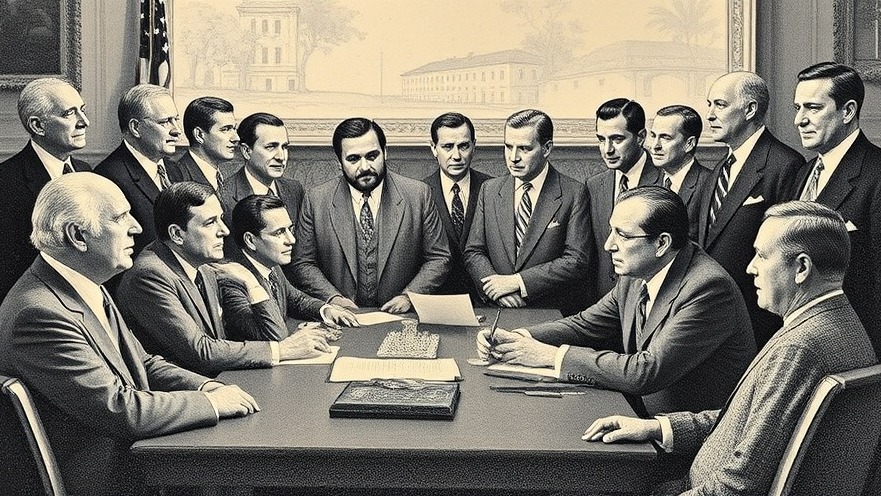
Understanding Florida's Political History: A Reflection
The release of Robert W. Fieseler's new book sheds light on a troubling chapter of Florida's history steeped in anti-communist fervor. Known as the Johns Committee, named after Florida senator Charley Johns, this legislative body operated from 1956 to 1965 and focused primarily on targeting Black and queer citizens under the guise of maintaining public morality. During this era, individuals deemed 'suspicious' fell victim to invasive investigations that often led to job losses and public ostracism, a chilling reminder of how fear can be manipulated for political gain.
Unpacking the Second Red Scare: Historical Parallels
By examining Fieseler's poignant exploration, readers can draw unsettling parallels to contemporary politics. The climate of distrust and division that characterized the first Red Scare seems to be resurfacing today, particularly under the governance of Ron DeSantis, who increasingly utilizes anti-LGBTQ+ rhetoric to galvanize his support base. Fieseler argues that current policies, such as bans on inclusive education, echo the oppressive measures taken by the Johns Committee during its operation.
Fear as a Political Tool: A Cycle of Control
Fieseler’s insights reveal how historical political figures, like Johns, understood that creating a ‘boogeyman’ in society is an effective strategy to maintain power. Throughout history, scapegoating marginalized groups has invoked fear in the populace, thereby justifying repressive measures against them. This strategy has been shockingly effective, from Anita Bryant's campaigns in the 1970s to DeSantis’ contemporary initiatives.
Lessons on Social Responsibility and Awareness
As digital nomads traverse various cultures, understanding the historical context of places they visit can enhance their experiences. Engaging with Florida's past may serve as a catalyst for a more profound appreciation of social justice and equality. The book serves not only as a history lesson but a call to remain vigilant against similar trends today. An engaged traveler may look to connect with local communities and advocate for inclusive policies.
The Importance of Preserving History
Fieseler emphasizes the critical nature of documenting and sharing history. Books like his are essential reminders that the ramifications of systemic discrimination can persist over generations if left unchecked. An informed populace, aware of history's cyclical nature, has the power to interrupt the patterns of oppression, fostering a more inclusive society.
Conscious Living in the Modern Age
As challenges around civil rights continue to emerge, individual actions can have significant implications. Adopting a mindful approach in consuming information, visiting historical sites, and supporting local organizations engaged in social justice can empower travelers. The choices we make—even those that seem small—contribute to the collective narrative and influence social structures in smaller communities across the globe.
Conclusion: Engage with History for Social Change
If the history of Florida has taught us anything, it’s that fear-mongering tactics can threaten liberty and justice for all. As we reflect on the lessons from Fieseler’s book, we are reminded of the significance of advocating for rights and understanding our responsibilities as global citizens. Engaging with history reinforces our connection to the present and shapes our future.
As you reflect on the narratives that have shaped our modern society, consider how you can contribute to a more inclusive future. Explore local initiatives in your communities that advocate for social justice and take active steps to support those efforts. Every voice and action counts in the movements we create for change.
 Add Row
Add Row  Add
Add 




Write A Comment